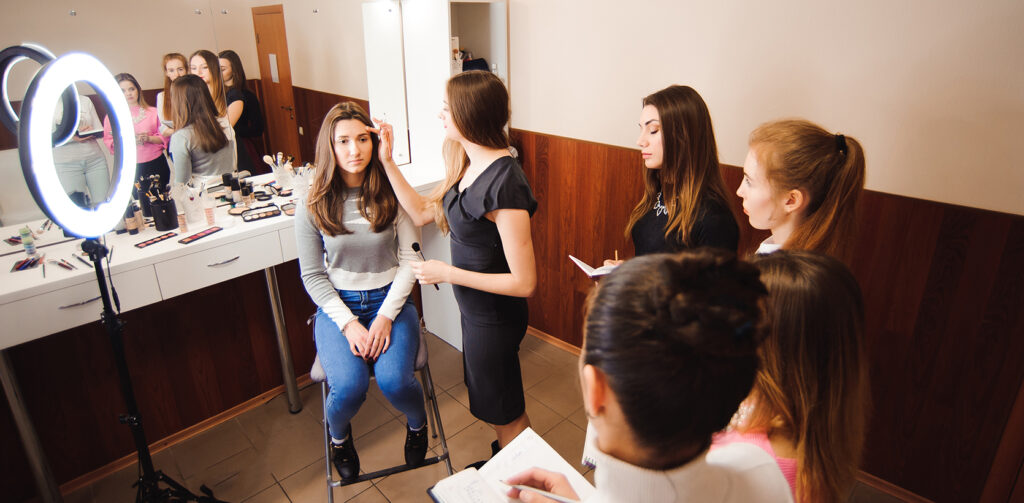
- Daily Skin Care
- CTM
- Face Bleach
- TH Work
- Front Styling
- Self makeup Look Day
- Self makeup Look Night
- Makeup Remove Technique
- Nail Art
- Dots
- Line
- Petal
- Bow
- Heart
A self-grooming course is a program designed to help individuals enhance their personal appearance and develop grooming habits that improve their self-confidence and overall well-being. These courses typically cover a wide range of topics related to personal care, hygiene, fashion, and grooming techniques. Here’s an overview of what you can expect from a self-grooming course:
Personal Hygiene: Proper personal hygiene is the foundation of self-grooming. Students learn about daily routines for bathing, skincare, dental care, and hair care to maintain cleanliness and freshness.
Skin Care: The course may include information on skincare routines, including cleansing, exfoliation, moisturizing, and sun protection. Understanding different skin types and addressing common skin concerns is often part of the curriculum.
Hair Care: Students learn about proper hair care, including shampooing, conditioning, styling, and dealing with common hair issues such as dandruff or hair loss.
Makeup Application: Basic makeup techniques are often covered, including how to apply foundation, concealer, eye makeup, lipstick, and blush. The emphasis is typically on natural and everyday looks.
Fashion and Dressing: Understanding clothing styles, color coordination, and dressing for different occasions is a crucial aspect of self-grooming. This includes learning how to build a wardrobe and accessorize.
Nail Care: Nail care, including manicures and pedicures, may be included in the course to help students maintain well-groomed hands and feet.
Etiquette and Social Skills: Some self-grooming courses also cover social etiquette, manners, and communication skills, which are essential for making a positive impression in social and professional settings.
Body Language and Posture: Understanding body language, maintaining good posture, and developing a confident demeanor are often part of self-grooming courses.
Personal Wellness: Courses may include information on stress management, mental health, and overall well-being to help individuals feel their best both inside and out.
Self-Care and Self-Confidence: The course may emphasize the importance of self-care practices and building self-confidence. This can include strategies for self-esteem building and positive self-image.
Practical Skills: Hands-on practice and demonstrations are often part of self-grooming courses, allowing students to apply what they’ve learned in real-life situations.
Personalized Advice: In some cases, self-grooming courses may offer personalized advice and consultations to address individual grooming and style needs.

